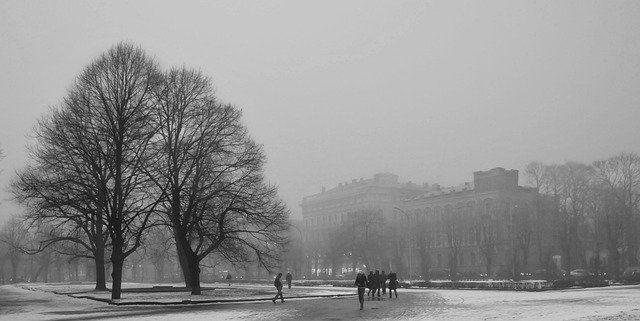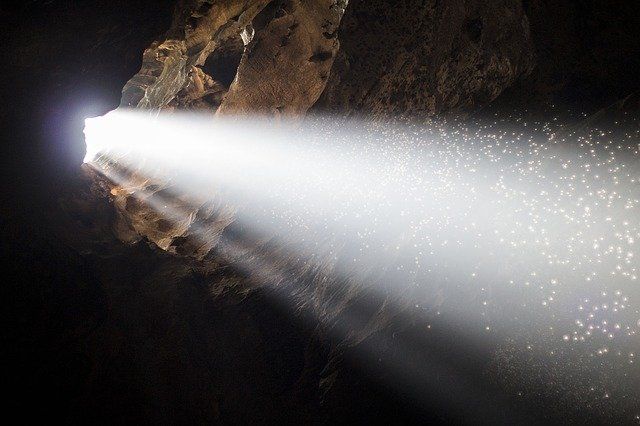Latvia lies between Western Europe, with its mix of Roman Catholic and Protestant beliefs, and Russia with its Eastern Orthodox tradition. This intermediate position is reflected in its religious makeup.
Latvia’s two largest denominations are the Evangelical Lutheran (central and western districts of Latvia) and Roman Catholic (eastern).
Amongst Russians, who make up one third of Latvia’s population, Russian Orthodox and Old Believers predominate.
Russian Orthodox
Russian Orthodox teaching arrived as a consequence of the Russification policies of the 18th, 19th and 20th centuries. Today this denomination has around 100,000 members in Latvia.
The Orthodox Church believes that she alone is the true Church and that her forms, sacraments and traditions have continued uninterrupted since the days of the apostles. This has led most Russians to regard other denominations (such as Baptists) as sects.
The Russian Orthodox are not burdened with all the doctrinal developments of Roman Catholicism — papal infallibility, purgatory, the Immaculate Conception of Mary, etc. However, they have no true understanding of the gospel.
Instead of teaching justification by faith alone, the Orthodox teaches that we are saved by God’s grace in us, even though the Bible teaches that this can never be enough, since God demands perfect righteousness — a righteousness found only in the Lord Jesus Christ, and imputed to those who believe on him.
In the end, the Russian Orthodox Church grounds its ‘redemption’ in sanctification, and makes salvation a ‘work’ that its adherents must do.
Old Believers
The Old Believers Church is closely related to the Russian Orthodox and agrees with it on all major points of doctrine. It came into existence in the seventeenth century, when it opposed and rejected reforms within the Orthodox Church.
The oldest Old Believers parish in the world has its home in Latvia, and traces its origin back to the 18th century.

Pentecostals
There are many younger Russian Christians in the Pentecostal and Charismatic movements. They all lay claim to the Holy Spirit’s power and an ability to receive miraculous spiritual gifts, supposedly for believers today. The Charismatic movement is one of Latvia’s fastest growing religious movements.
A congregation, which split from a Baptist church in 1989, founded one of its larger groups, called New Generation. Initially consisting of no more than 200 people, mostly Russian, New Generation today has over 6,000 members in Latvia.
Baptists
The Baptists make up the other larger group of Protestant churches.
It is generally thought that Baptist work began in Latvia in a small way in 1847. A Lutheran schoolteacher, studying the Bible for himself, began asking questions about baptism that the church leadership were unable to answer adequately.
In time, contacts were made with German Baptists, and in 1861 the first Latvian Baptist church was established. Today the Latvian Baptist Union has 83 churches with a total membership of around 6,500.
Amongst these Baptist Union churches are 13 Russian-speaking churches. There are also a few ‘unregistered’ Russian Baptist churches (under Soviet government these congregations refused to register with the authorities, and so met in secret).
Theologically, the Baptists are evangelically minded, teaching a present salvation and an assurance of faith through Christ, as opposed to Orthodox teaching that a believer is always in the process of being saved.
However, when it comes to eternal security, things are different — Russian Baptists are overtly Arminian.
They emphasise man’s free will in repentance, the need to remain faithful to God, and teach explicitly that a Christian can lose his salvation.
Traditions

Church services are central to Baptist ministry and thinking. Here one can see the influence of Russian Orthodox doctrine. Believers are often expected to be at every meeting of the church.
Tradition (stories and anecdotes), rather than theological argument based on Scripture, guide the life of the churches. Legalism, inculcating a strict ‘separation’ from the world, and authoritarianism are apparent.
Maybe such tendencies stem from the recent era of Soviet persecutions, when Baptist churches responded by striving to maintain their distinctive identity. However, today amongst their younger members there is a desire for change.
Some would like to see their churches making greater efforts to present the gospel in ways relevant to contemporary society — a society that has undergone drastic changes during the last 10 years.
Reformed churches
There is only one Russian Reformed church in Latvia at present, and no Russian Reformed Baptist churches.
Although the Reformed movement is growing amongst young Latvians, this is not the case amongst Russians, despite the fact that there is an increasing amount of Reformed literature being translated into Russian.
The Bible version recognised by almost all Russians (similar to our Authorised Version) was translated in 1876; there are also some more modern translations.
Recently, the New Geneva Study Bible was translated into Russian, and, with its excellent study notes, is becoming more popular.
Calvin’s Institutes are readily available in Russian, as well as books by John Owen, Thomas Boston, J. C. Ryle, Stuart Olyott, Sinclair Ferguson and, of course, Charles Spurgeon.
Good theological education in Russian is available at various levels. The Riga International Bible Institute gives Bible teaching at basic and more advanced levels. It is popular with lay-members from Lutheran, Baptist and Pentecostal churches.

And then there is the Riga Reformed Theological Seminary, which has visiting lecturers from the big Reformed seminaries in America, Canada and Western Europe.
Light needed
Taken as a whole, it would be fair to say that the tools for future reformation are readily available to the Russian churches in Latvia, but in all the denominations the gospel still needs to be clearly understood and powerfully proclaimed.
There is at present no obstacle to missionaries coming to this country; and there is a need for mature Christians in Latvia who will teach the gospel clearly and live lives reflecting its transforming power.
Do pray that the light of the gospel may drive away the darkness, and change men and women into people radiating the grace and glory of God in Jesus Christ.













